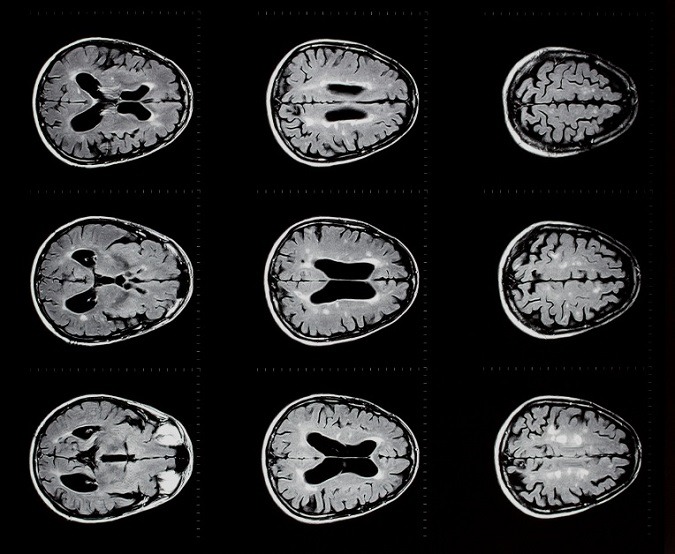Study combines MRI brain scans with statistics to better predict cognitive problems after stroke
 ___
___
New ‘brain health index’ can predict how well patients will do after stroke (ScienceDaily):
“A new computer programme developed by scientists at the Universities of Edinburgh and Glasgow can assess whole brain deterioration and help predict cognitive function after stroke up to ten times more accurately than current methods.
The new approach, published today in the International Journal of Stroke, can quantify visible brain injury from cerebral small vessel disease (SVD) and brain atrophy by translating the million plus bits of information stored in brain scans into a single measure, the “brain health index.”…
Dr David Alexander Dickie, from the University of Glasgow’s Institute of Cardiovascular and Medical Sciences, said: “We recognised a need for a more inclusive approach to assessing common brain disorders of ageing. Our new method allows us to use every piece of information from a brain scan, rather than just individual features of the brain that can only tell us so much about a person’s risk for cognitive problems…Eventually we hope to introduce brain health index into clinical practice so that it may improve early identification and treatment of cognitive decline and dementia after stroke.”
The Study:
The brain health index: Towards a combined measure of neurovascular and neurodegenerative structural brain injury (International Journal of Stroke). From the abstract:
- Background: A structural magnetic resonance imaging measure of combined neurovascular and neurodegenerative burden may be useful as these features often coexist in older people, stroke and dementia.
- Aim: We aimed to develop a new automated approach for quantifying visible brain injury from small vessel disease and brain atrophy in a single measure, the brain health index.
- Materials and methods: We computed brain health index in N?=?288 participants…We tested brain health index against a validated total small vessel disease visual score and white matter hyperintensity volumes in two patient groups and against measures of brain atrophy in healthy participants using multiple regression. We evaluated associations with Addenbrooke’s Cognitive Exam Revised in patients and with reaction time in healthy participants.
- Results: The brain health index was significantly and more strongly associated with Addenbrooke’s Cognitive Exam Revised, including at one year follow-up, than white matter hyperintensity volume and small vessel disease score alone in both patient groups. Further, the brain health index was more strongly associated with reaction time than measures of brain atrophy alone in healthy participants.
- Conclusions: The brain health index is a new image analysis approach that may usefully capture combined visible brain damage in large-scale studies of ageing, neurovascular and neurodegenerative disease.
The Study in Context:
- Next: Brain scans to identify children at high risk of developing multiple sclerosis (MS) before symptoms appear
- 25 Key Resources to Improve Brain Health and Mental Health
- Five reasons the future of brain enhancement is digital, pervasive and (hopefully) bright
- 10 neurotechnologies about to transform brain enhancement and brain health
- What are cognitive abilities and how to boost them?
- Solving the Brain Fitness Puzzle Is the Key to Self-Empowered Aging


